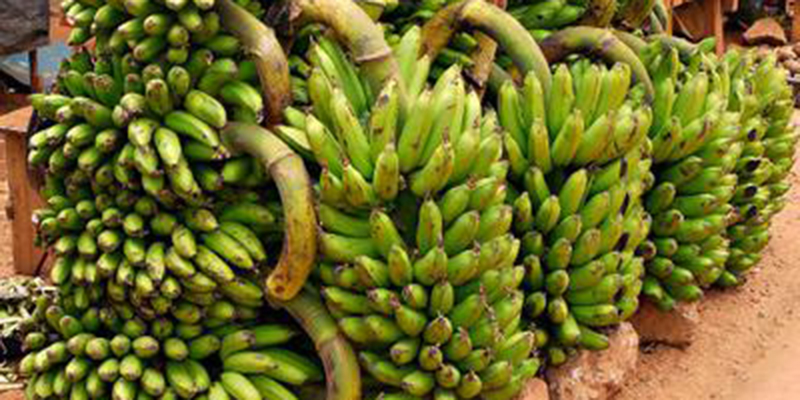As Ugandans, new research findings show.
The Uganda Bureau of Statistics (UBOS) this week released findings of the 4th National Panel Survey 2013/14 in which they track some 2000 households over time in order to measure changes in living standards.
The survey findings show that despite our immense natural resources endowment that allows almost stress-free food production, almost half (47%) of our total spending goes towards food. Rent, Fuel and Energy come in second position at 17% while education takes up 11% of our expenditure.
Experts argue that a disproportionately high level of spending going to food is a worrying indicator of the prevalence of poverty in households.
Ramathan Ggoobi, an economics lecturer at Makerere University Business School (MUBS) said these findings vindicate those who have always argued that poverty remains a key threat to Uganda’s economy.
“These survey shows that although national figures lie to us that as many as 80% of Ugandans have escaped income poverty, the reality is that household poverty is still very high in Uganda. That alone shows that population cannot escape nutrition-related poverty,” argues Ggoobi.
Ggoobi adds: “This is one of the major indicators that we have not improved our micro-economic indicators at the household. There is need for us to focus on household indicators such as incomes, expenditures, health-related poverty, cost of living.”
Ggoobi, who recently completed another study around the same subject adds that even the few better-off Ugandans working in the services sector, still spend a large proportion of their incomes on food.
The latest figures show consistent pattern between household poverty and malnutrition. Latest findings show that whereas the national poverty indicators improved from 24% to 19% of the overall number of absolutely poor people (those below poverty line) the number of stunted children has not reduced much.
Between 2009/10 and 2013/14, there has been an insignificant 0.7% reduction in the proportion of stunted children from 33.7% to 32.4%.
The implied high prevalence of poverty and vulnerability in most Ugandan homes as revealed by the survey, contradicts government figures that show that abject poverty levels have declined substantially to 19% of the total population.
Besides exposing the level of vulnerability, the high food expenditure levels have far-reaching implications for government policies especially those on agriculture, healthcare, and infrastructure.
According to Ggoobi, there is a cobweb of reasons to explain why many Ugandans are stuck in poverty and malnutrition.
Ggoobi argues that food takes a huge proportion of people’s incomes because food is expensive, which is also born by low levels of agricultural productivity coupled with high post-harvest losses.
“Our productivity is very low. Can you imagine we use 2.18 million acres of land to produce just 2 million tones of maize, and that we use 900,000 acres of land to produce just 160,000 tones of coffee,” argues Ggoobi, who notes that our per-unit acre production is extremely low compared to other countries.
These yield estimates by Ggoobi mean that Uganda produces less than one ton of maize per acre. This is relatively half the average yield of maize in most African countries which are less endowed than Uganda.
In terms of policy implications, Ggoobi argues that government has an important task of addressing risks that prevent the private sector from investing in Agriculture.
“There are no incentives for people to invest in agriculture. Our agriculture is supply driven rather than being demand driven. People move into agriculture mostly after they are urged to.”
The huge price variations brought about by the boom and burst cycles characteristic of agriculture in Uganda.
He argues: “We must stabilize prices by industrialising our agriculture and adding value to our produce.”
Ggoobi cites the example of Gen. Salim Saleh, whom he says was just a few years ago one of the most frustrated big farmers in Uganda because he was prone to losing most of his produce post-harvest.
“Gen. Saleh is now one of the happiest farmers in Uganda because he discovered the secret of how to stabilize prices through value addition.”








